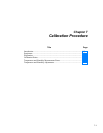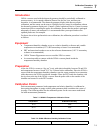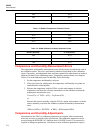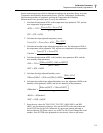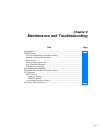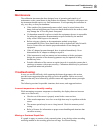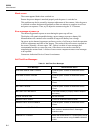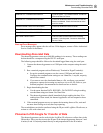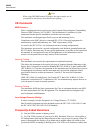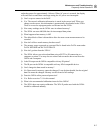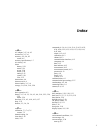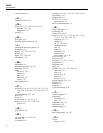
Maintenance and Troubleshooting
Maintenance 8
8-3
Maintenance
The calibration instrument has been designed ease of operation and simplicity of
maintenance as the central theme in the product development. Therefore, with proper care
the instrument should require very little maintenance. Avoid operating the instrument in
oily, wet, dirty, or dusty environments.
• If the outside of the instrument becomes soiled, it may be wiped clean with a
damp cloth and mild detergent. Do not use harsh chemicals on the surface, which
may damage the LCD or the plastic front panel.
• If a hazardous material is spilt on or inside the equipment, the user is responsible
for taking the appropriate decontamination steps as outlined by the national
safety council with respect to the material.
• Before using any cleaning or decontamination method except those
recommended by Fluke, users should check with an Authorized Fluke Scientific
Service Center to be sure that the proposed method will not damage the
equipment.
• If the AC adapter becomes damaged, have it replaced immediately. Never
disassemble the AC adapter or attempt to repair it.
• If the instrument is used in a manner not in accordance with the equipment
design, the operation of the thermo-hygrometer may be impaired or safety
hazards may arise.
• Periodic calibration of the sensors at regular intervals is required to ensure that it
continues to measure with proper accuracy. Calibration should only be performed
by qualified authorized personnel.
Troubleshooting
In case you run into difficulty while operating the thermo-hygrometer, this section
provides some suggestions that may help you solve the problem. Below are several
situations that may arise followed by possible causes and suggested actions you might
take.
The following sections list possible situations, their causes, and suggested actions.
Incorrect temperature or humidity reading
While attempting to measure temperature or humidity, the display shows an incorrect
value or no value at all ( . . . . . . . . . ).
• Check to see if the sensor is properly seated in the correct sockets.
• If the actual temperature is too low or too high there may be a problem with the
sensor.
• The measure period may be set to a long interval. Check the measure period
setting.
• Refer to Sensors for information on proper sensor handling and situations that
can affect accuracy.
Missing or Scattered Graph Data
If a graph is empty or consists of only scattered points, it may be due to data recording
not being enabled or the recording period set too large. See Record Setting.



